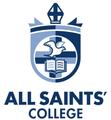
YEAR 9 COMPULSORY MESH OPTIONS
MATHEMATICS LEARNING AREA
Numeracy
Numeracy is the ability to effectively apply Mathematics in everyday recreational, work and civic life, and is vital to the quality of participation in society.
In order to be numerate, students need to learn Mathematics and the language of Mathematics, to make sense of Mathematics, to be confident in their use of Mathematics, and to see how it can help them make sense of their world and the world of others.
Numeracy is a fundamental component of learning across all areas of the curriculum.
The development and enhancement of students’ numeracy skills and understanding are the responsibility of all teachers. The teaching of Mathematics, however, plays a particularly important role.
In Mathematics, the early adolescent of Years 8, 9 and 10 typically progresses from the concrete to the abstract.
The breadth and depth of Mathematics content increases, with a broadened focus on the development and application of understanding.
At the beginning of this phase of development, early adolescent learners commence their journey into the world of universal ideas, learning about the processes of discovery and the implications for change. They successfully complete activities focusing on problem solving. Subsequently, they typically begin to move from reflecting on local and real-world experiences to considering increasingly complex and abstract mathematical concepts and ideas. They value opportunities to explore new ideas in depth, commonly in cooperation with their peers.
By the end of the Early Adolescence phase of development, students begin to use more sophisticated cognitive strategies. They investigate purely mathematical ideas and relationships, gaining experience with the cycles of conjecture, explanation, and justification.
At All Saints’ College, the Mathematics Curriculum in Years 9 and 10 is founded on the following principles of learning:
- Motivation and purpose: Learning experiences should be motivation and their purpose clear to the student.
- Inclusivity and difference: Learning experiences should respect and accommodate differences between learners.
- Independence and collaboration: Learning experiences should encourage students to learn both independently and from and with others.
Courses
There are four available choices in Year 9. Different pathways will be recommenced based on students' performance.
Students can choose from:
- Mathematics Essentials 09 - Least challenging and not suitable for ATAR students.
- Mathematics Applications 09 - For students wishing to pursue university courses that do not require a strong Mathematics background.
- Mathematics Methods 09 - For capable students wishing to pursue university courses requiring higher Mathematics.
- Mathematics Specialist 09 - For highly capable Mathematics students.
which then lead on to the Year 10 courses
- Year 10 Mathematics Methods (Advanced Placement required)
Extension
All Saints’ College has established itself as one of the leading schools in Western Australia for providing opportunities for gifted and talented mathematicians, with extraordinary success in State and National Mathematics competitions. With a dedicated Extension teacher in Mathematics, the program at All Saints’ College is the envy of many schools.
To view a larger image of the Mathematics Pathways flowchart, please click HERE.
ENGLISH LEARNING AREA
In Year 9 English, students engage with a variety of text types and continue to develop their skills across the three learning objectives: Language, Literature and Literacy.
The text types include fiction such as poetry, short stories and novels, and non-fiction such as current affairs and news programs on television. Our students develop their comprehension skills and analytical skills by responding to these texts, and then apply what they have learned when they create their own texts to suit their specific purposes and target audiences. Students write in a variety of forms such as essays, poems and narratives. Each term students will complete a variety of oral and written tasks to assess their understanding of texts and the English Outcomes.
There are two options for studying English in Year 9:
- English Empowerment (for students who require additional support in English)
- English Engagement (for all other students)
Students who would benefit from being extended further than the level of Year 9 English may be invited to enrol in the Year 10 English Engagement course.
SCIENCE LEARNING AREA
Year 9 courses are taught in non-streamed (heterogeneous) classes and students cover the following four disciplines:
- Chemical Science
- Physical Science
- Biological Science
- Earth and Space Science
These areas of study are based upon the Western Curriculum and have been refined to allow students the opportunity to further their understanding of key scientific concepts. In addition to scientific knowledge, students will also engage in investigative work and develop key skills associated with scientific inquiry.
HUMANITIES AND SOCIAL SCIENCE LEARNING AREA
Students in Year 9 will cover the four key disciplines of Humanities and Social Sciences (HASS):
- Civics and Citizenship
- Economics and Business
- Geography
- History
The units of study are based upon the Western Australian Curriculum. All subjects are given equal importance in the curriculum and integrate the inquiry process, skills and the general capabilities. Students learn in non-streamed (heterogeneous) classes.
Civics and Citizenship examines 'Our democratic rights', Economics and Business considers 'Australia and the global community', Geography explores 'Biomes and food security' and 'Geographies of interconnectedness' whilst, History investigates the Making of the Modern World from 1750-1918 through two units, 'The Industrial Revolution' and 'World War I'.

